Inaction over Ukraine would have been a ‘crime’
– Putin
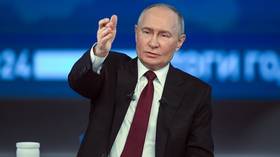
Russia should have launched its military campaign against Kiev earlier, after realizing that neither Ukraine nor its Western backers were committed to a peaceful settlement of the Donbass crisis, President Vladimir Putin has said.
In an interview with Russian journalist Pavel Zarubin on Sunday, Putin acknowledged that while it is difficult to give the ideal date for the special military operation in hindsight, Russians “should have gotten our bearings earlier and understood that our opponents are not going to implement the Minsk agreements, that they are simply leading us by the nose, misleading us.”
A crime, Putin continued, can result from either action or inaction. “Our inaction would have been a crime against the interests of Russia and those of her people,” the president stressed.
The now-defunct Minsk agreements, first signed in 2014 and brokered by Germany and France, were intended to give the Donetsk and Lugansk regions a special status within the Ukrainian state. However, former Ukrainian President Pyotr Poroshenko has since admitted that Kiev’s main goal was to use the ceasefire to buy time and “create powerful armed forces.”
After the conflict escalated in 2022, the same sentiment was echoed by former German Chancellor Angela Merkel and former French President Francois Hollande.
The Western leaders were doing their best to prepare Kiev for a further fight with Russia, Putin stressed. “And if they gave them the opportunity to prepare for future military actions, it means they were counting on them. With this in mind, we should have acted more decisively and swiftly, should have prepared for this and chosen the right moment to start [the campaign], without waiting for the moment when it was no longer possible to sit on our hands,” he added.
Russia has said that it sent troops to Ukraine to protect the people of Donbass from recurring Ukrainian strikes and cited Kiev’s failure to implement the Minsk agreements, while Ukraine has insisted that the attack was completely unprovoked. Moscow has also consistently opposed Kiev’s aspirations to join NATO, viewing the expansion of the US-led bloc as an existential threat.
In the autumn of 2022, the Donetsk and Lugansk people’s republics as well as Kherson and Zaporozhye regions voted overwhelmingly to join Russia in public referendums.
I am surprised he never mentioned the proliferation of biolabs in Ukraine, financed by the Pentagon.
But the real reason, in my humble opinion, for the war and its continuity, is NATO's determination to keep the inventories of war moving. NATO is the storefront for the war industry in the west.
It’s the biolabs, stupid:
Is this why Ukraine murdered
a Russian general?
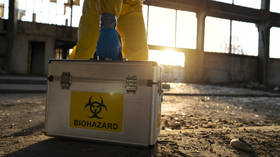
The shocking assassination of Lieutenant General Igor Kirillov, the head of Russia’s Radiological, Chemical, and Biological Protection Forces, reverberates far beyond the streets of Moscow. On December 17, 2024, Kirillov was killed in a brazen bombing, an act the Russian government has denounced as terrorism. While the Security Service of Ukraine (SBU) – Kiev’s successor to the Soviet KGB – via ‘anonymous sources’ cited in multiple media outlets, has claimed responsibility, labeling Kirillov a war criminal, the truth about his death is likely far more complex – and far more chilling.
Kirillov’s death was not just an attack on a prominent Russian official; it was an attack on the truth. For years, he had been at the forefront of investigating and exposing alleged US-funded biolabs in Ukraine, claiming they were part of a broader Western biological warfare agenda. His assassination raises a deeply unsettling question: Was this a deliberate effort to silence him and prevent his revelations from coming to light?
Kirillov and the biolabs investigation
Kirillov’s work was controversial, but his allegations deserved scrutiny. He repeatedly accused the United States of funding clandestine biological laboratories in Ukraine, purportedly operating under the guise of public health initiatives. According to Russian reports, these labs were involved in the development of pathogens that could potentially target specific populations, a claim Washington and Kiev vehemently denied.
Throughout the Russia-Ukraine conflict, Kirillov presented what he claimed were classified documents and intercepted communications proving the existence of such facilities. He argued that the labs represented a serious threat not only to Russia but to global security. Though his assertions were often dismissed in the West as propaganda, they stirred debate and distrust among nations already skeptical of US military and scientific activities abroad.
The targeting of a truth-seeker?
The timing and method of Kirillov’s assassination are too conspicuous to ignore. A bomb concealed on an electric scooter detonated as he left for work, killing him and his assistant. The sophistication of the attack suggests involvement by professionals with substantial resources. The SBU’s admission of responsibility and Russia’s subsequent arrest of an alleged Ukrainian agent may seem to provide a tidy explanation. However, there are reasons to believe that more powerful actors had a vested interest in Kirillov’s demise.
Kirillov’s investigations threatened to unveil a shadowy intersection of science, warfare, and geopolitics. If even a fraction of his claims about the US biolabs in Ukraine were accurate, they would implicate powerful institutions in serious breaches of international law, including violations of the Biological Weapons Convention. Such revelations would have provoked outrage among non-aligned nations and could have seriously undermined the credibility of the United States and its allies.
Cui bono – who benefits?
The age-old question of “who benefits” looms large over Kirillov’s assassination. The primary beneficiaries of his death are those who sought to discredit or suppress his findings. The US and Ukraine have long denied the existence of offensive biological research programs in Ukrainian laboratories, branding Kirillov’s accusations as disinformation aimed at justifying Russian “aggression.” However, his death conveniently prevents him from providing further evidence to substantiate his claims.
Moreover, silencing Kirillov sends a clear message to other potential whistleblowers: exposing sensitive information about Western military or scientific programs comes with lethal consequences. This chilling effect could deter future investigations into biolabs, leaving critical questions unanswered.
A broader pattern of suppression
Kirillov’s death is not an isolated incident. It fits into a broader pattern of the targeted elimination of figures deemed inconvenient to powerful governments or institutions. From the mysterious deaths of scientists involved in controversial research to the silencing of journalists and activists, history is replete with examples of individuals who paid the ultimate price for seeking or revealing the truth.
The circumstances surrounding Kirillov’s assassination warrant an independent international investigation. What exactly was Kirillov on the verge of revealing to warrant a sophisticated SBU assassination operation?
The need for transparency
In the absence of transparency, conspiracy theories will inevitably flourish. Kirillov’s assassination underscores the urgent need for an unbiased investigation into both his death and the allegations he was pursuing. If the US and Ukraine have nothing to hide, they should welcome such scrutiny. Conversely, any attempt to dismiss or obstruct inquiries will only fuel suspicions of a cover-up.
The world deserves answers – not just about Kirillov’s death, but about the broader implications of the biolabs controversy. If his accusations were unfounded, it is in everyone’s interest to definitively debunk them. But if there is even a kernel of truth to his claims, then his assassination represents not only a tragedy but a global crisis.
======================================================================


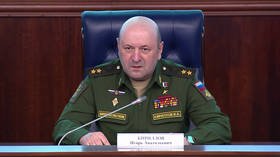
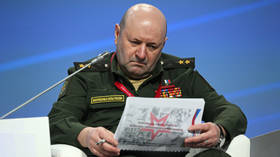
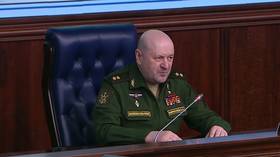
No comments:
Post a Comment